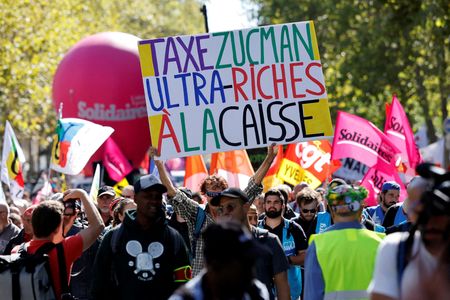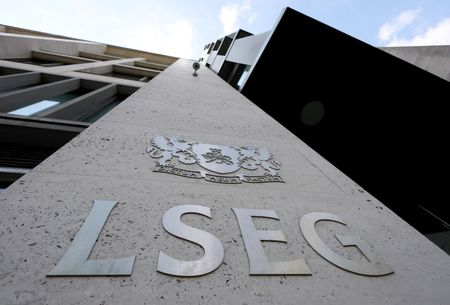PARIS (Reuters) -France’s government defended its alternative to a broad levy on the ultra-rich proposed by left-wing parties, as lawmakers debated a wealth tax to help plug a budget hole on Friday.
Deep divisions in France’s raucous parliament have crystallized over how to tax the wealthiest citizens as lawmakers debate Prime Minister Sebastien Lecornu’s belt-tightening budget for next year.
Left-wing lawmakers want a 2% tax on wealth over 100 million euros – a measure promoted by French economist Gabriel Zucman, who says it could generate 15-20 billion euros annually.
Zucman argues that his tax, hugely popular in polls, would ensure the ultra-rich pay at least as much, proportionally, as average earners.
Wary that such a broad tax could hurt French firms, deter investment and destroy jobs, Lecornu has proposed instead a 2% levy on assets in holding companies not used for business purposes.
The tax, expected to raise up to 1 billion euros, would target taxpayers’ personal assets held in some 4,000 holding companies that serve no economic purpose other than to reduce their tax bill, Budget Minister Amelie de Montchalin said.
“Our aim is not to achieve tax justice at the expense of the economy,” Montchalin told lawmakers during the debate.
‘TAX JUSTICE’
Lecornu does not have a majority and is reliant on support from Socialist lawmakers if he wants the budget to be passed and the government to survive potential votes of no confidence.
Socialist lawmakers have acknowledged that amendments to introduce the Zucman tax were likely to fail, but pushed to tighten the proposed levy on holding companies.
“We are not calling for dispossession or confiscation, we are demanding tax justice,” Socialist lawmaker Boris Vallaud said ahead of the vote, likely Friday afternoon.
The final shape of the tax could still change when the budget bill reaches the Senate in the coming weeks, though the lower house will have the final say.
The legislation will also face scrutiny from the constitutional court, which has previously struck down tax laws it deemed confiscatory.
($1 = 0.8575 euros)
(Reporting by Leigh Thomas; Editing by Andrew Heavens)











